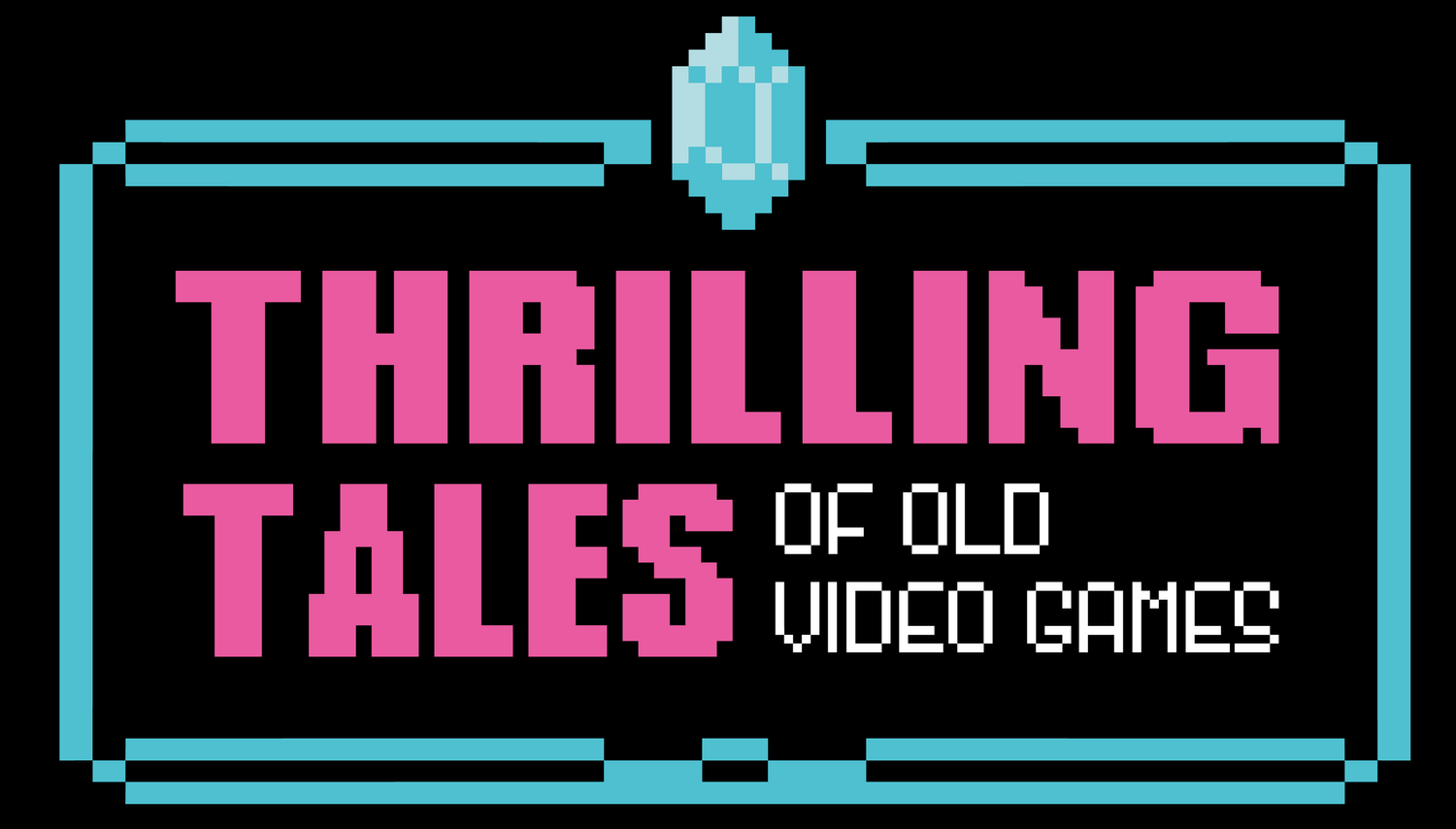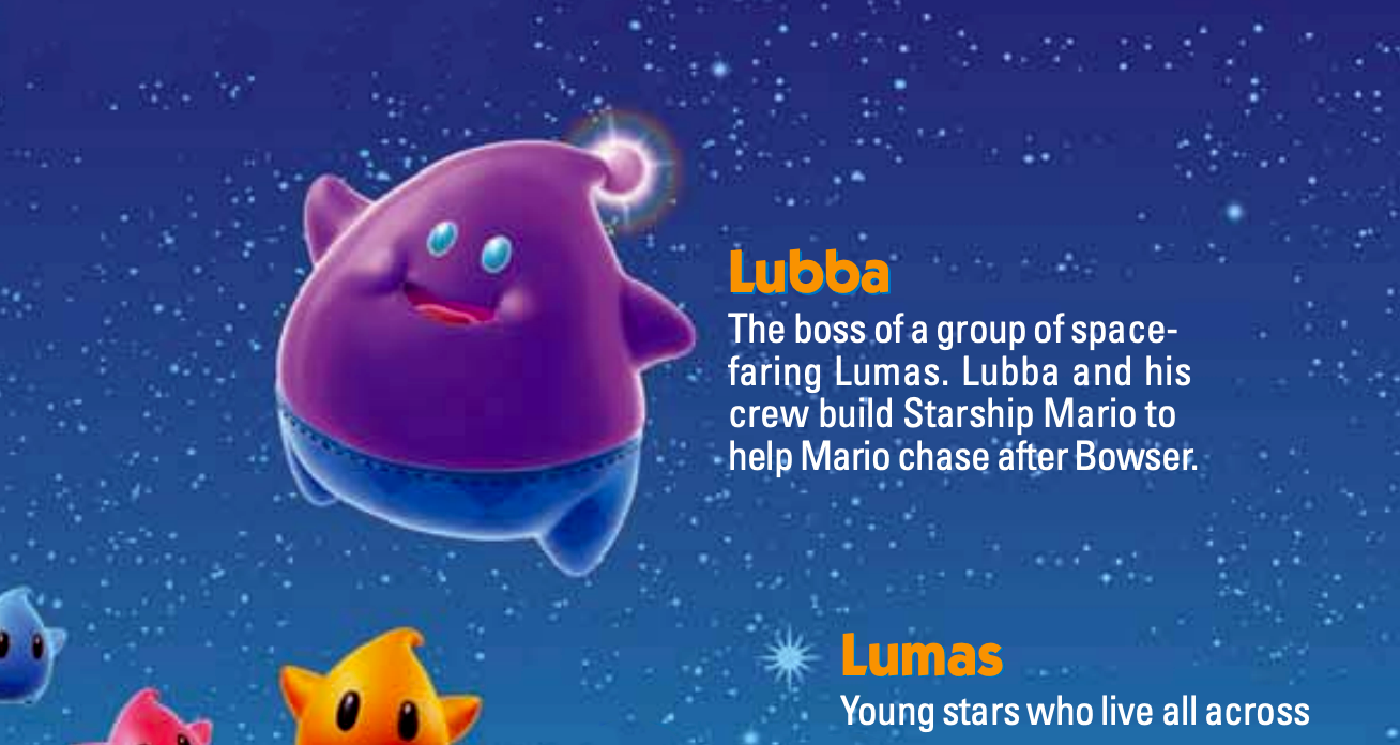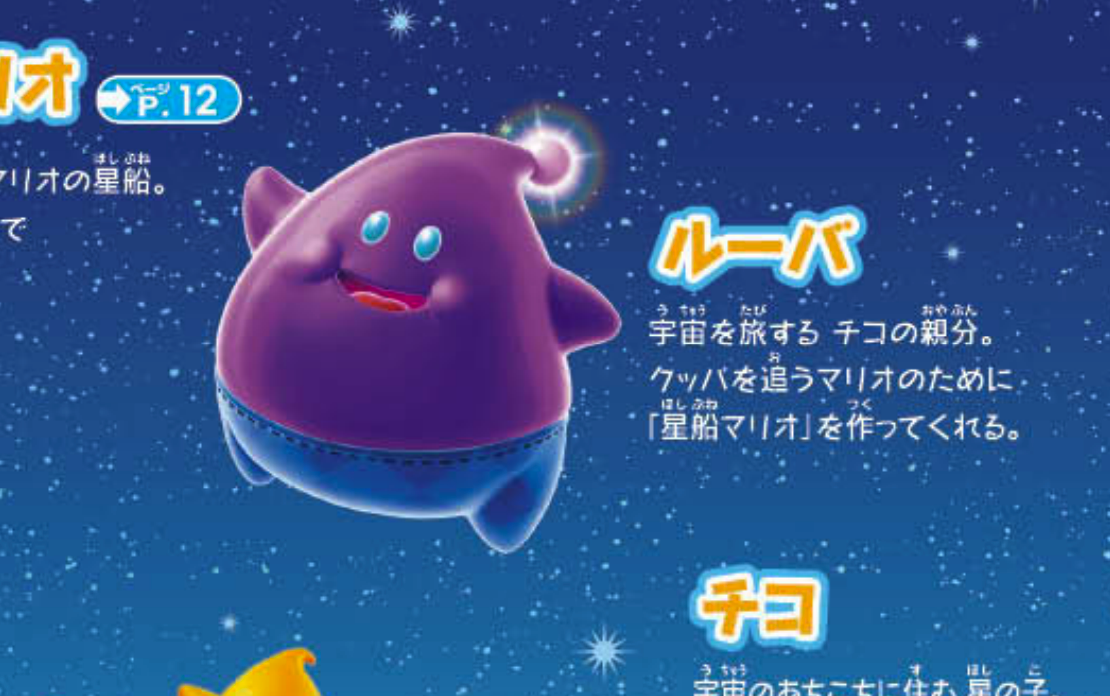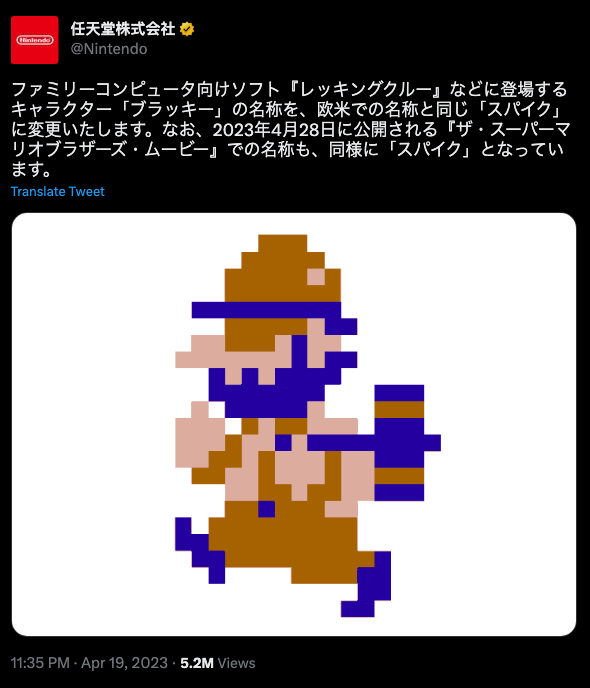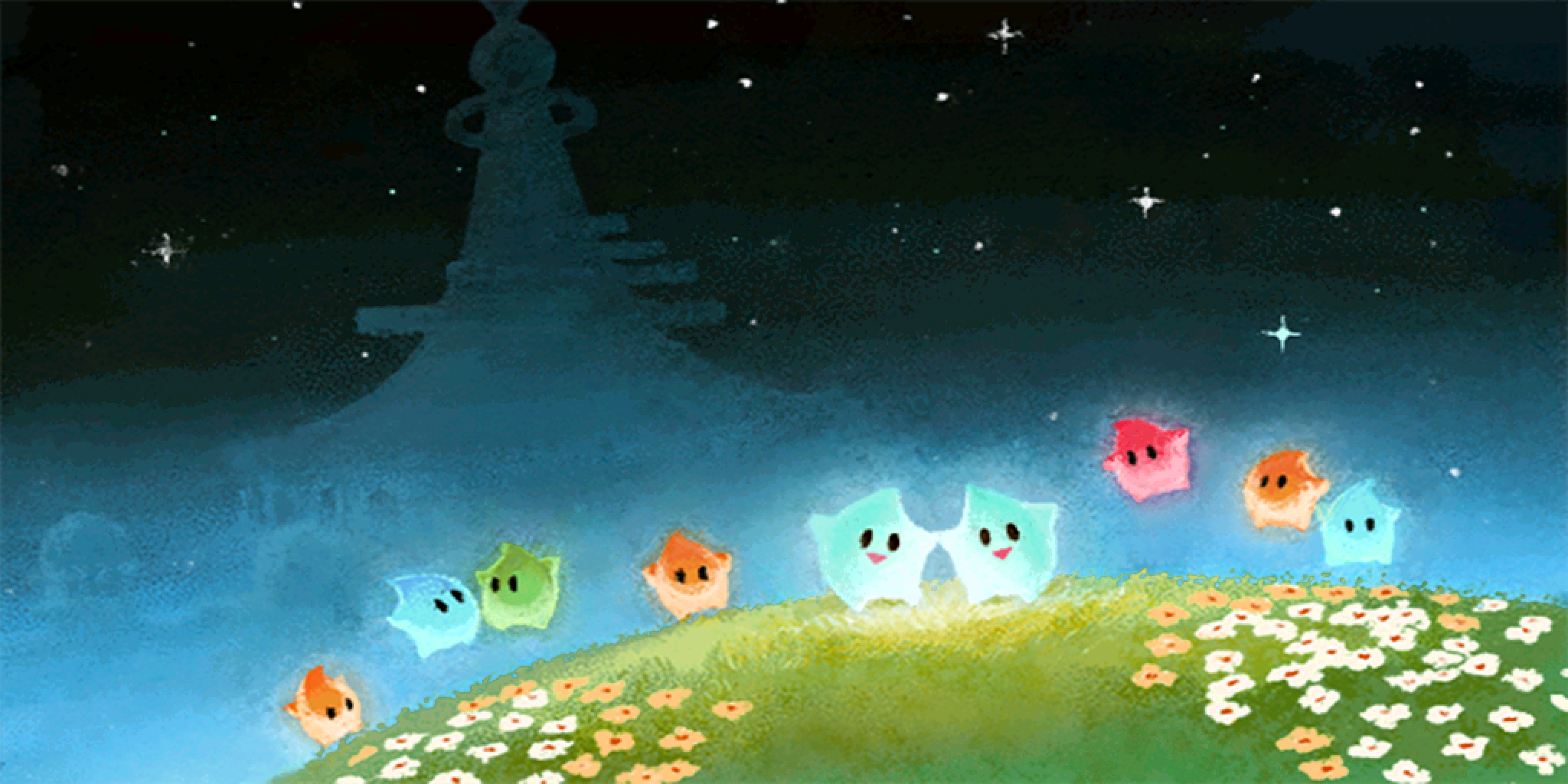Wait, Super Mario Galaxy’s Lubba Is Female?
Last week, Nintendo offered up the briefest of glimpses into The Super Mario Galaxy Movie, and while we only saw two of the video game characters making their debut in the sequel, I’m guessing we’re going to see the subject of this post soon enough. In fact, I’m guessing that Lubba’s appearance in the upcoming film is at least partly why Nintendo has clarified that despite any references to the contrary in previous materials, Lubba is, in fact, female… inasmuch as squishy star creatures can apparently have gender.
Debuting in Super Mario Galaxy 2, Lubba essentially plays the role that Rosalina did in the first game: as the leader of the spaceship that serves as Mario’s base of operations. Rosalina is conspicuously absent for most of Super Mario Galaxy 2, and only the mysterious Cosmic Spirit/Cosmic Witch, which looks like Rosalina but apparently is not her, appears in the game before the ending. In the original Super Mario Galaxy, however, Rosalina is very present and plays an explicitly maternal role. Not only is she the adoptive parent to the Luma, a species of sentient star creatures who can under certain circumstances transform into greater celestial bodies, but she also plays a less explicitly defined role as a sort of semi-divine mother-creator who reboots existence after Bowser sucks it into a black hole. It’s a lot, and I wonder how much Rosalina is downplaying her universe-creating powers when she’s joining a game of tennis or a go-kart race. But as a result of Rosalina being very much a space mommy, Lubba seemed very… not that, and I guess the best way I could sum up this character’s personality would be as avuncular — which means “friendly and genial” but especially in the way that would recall a kindly uncle. (The word avuncular literally comes from the Latin avunculus, “one’s mother’s brother,” so the connection is literal.) And while I’d say this adjective is not far off, recent info has led me to understand that it got the gender wrong.
As of the Switch 2 remake of Super Mario Galaxy 2, Lubba is explicitly female. Materials for this new version of the game use female pronouns in describing her, and there’s even a new backstory that demonstrates that this is not just a whim of the western localization. No, Lubba’s gender is very much baked into the game, and a new edition of Rosalina’s storybook reveals how Lubba came to be the captain of her own spaceship.
The story, basically, for those who would rather read: Lubba was one of a pair of twin sisters who grew up under the watch of “the lady of the shooting stars.” Lu, as she used to be called, was the shy and introspective one, while her sister Mari was impulsive and outgoing. One day, Mari turned into a star and left Lu behind, making Lu feel lonely as a result. She couldn’t turn into a star herself, and so Lu searched throughout outer space in hopes of finding Mari. The perspective then shifts to Mari’s, as she exists in space on her own, after having reverted to being a Luma. Curiously, she seems to shun existence though in a cheerful manner. “Mari liked the endless darkness. She preferred it, in fact. She found light bothersome,” the story tells us, ominously. But while Mari is existing in this void, waiting to become a star again, she spots a purple light in the distance. She turns into a star again, but the light fades away.
I… have some questions about this story and exactly what we’re supposed to understand about Lu and her void-loving sister, but I will get into that in the miscellaneous notes section at the end of the post. For now, I want to focus on Nintendo choosing to flesh out Lubba in a way I don’t think anyone expected, both because Nintendo for so long didn’t allow this kind of world-building in Super Mario games and also because of all characters to get a heartfelt backstory, I would never have guessed Lubba. The surprise of her being female is almost second to how much Nintendo is attempting to give a backstory that explains her motivations as a character. But then again, it’s unusual to have Nintendo saying “Oh, by the way, this character that debuted fifteen years ago is actually a girl, it turns out.”
Why on earth would Nintendo do any of this?
Well, given the timing, it is possible that this might result from some form of coordination with the upcoming movie, which I imagine will feature Lubba as a supporting character — and a female one at that. The movie could just introduce a newly female Lubba, I suppose, but when it comes to video game adaptations, changing even a minor character’s gender (or race or sexuality or, you know, just fill in the blank) will often rally the worst people online to decry perceived acts of wokeness. Having the source material explicitly identify Lubba as female at least makes it harder for those types to accuse liberal Hollywood of monkeying around with their beloved video game canon.
But here’s the thing: On the Japanese end, at least, Nintendo didn’t necessarily change much. The noion that there’s any revision or clarification happening says more about us westerners and how we read gender.
When Super Mario Galaxy 2 was first released in 2010, the English-language instruction manual explicitly referred to Lubba as being male.
The original Japanese version of the manual did not, however, but that’s less a statement on Lubba’s gender as it is one about Japanese’s tendency to omit pronouns and especially the kind of gendered pronouns that English favors. The way this has affected video games and their English localizations has been an ongoing theme on this blog going back to my Sypha Belnades post. And as it was with Sypha’s bio in the Japanese version of Castlevania III, the original bio for Lubba doesn’t assign a gender and therefore leaves the door open for the reader to assume whatever they’re inclined to.
Translation via Project Goemon, with bracketed pronouns to show you where you’d be inserting them to make it read more like standard English: The boss of Luma (チコ or Chiko in the original Japanese), traveling around the universe. [She] builds Starship Mario for Mario, who is chasing after Bowser. Per Project Goemon, the word translated as “boss,” 親分 or oyabun, “usually has an association with male characters in media, although it is gender neutral.”
In the west, at least, it would be pretty easy for someone to assume Lubba is male, just because Lubba doesn’t exhibit any of the visual markers of femininity that we’re used to seeing in video games. In short, she doesn’t have a bow on her head, she’s not wearing a skirt, and she’s not pink — to say nothing of the fact that she’s not taken captive at any point in the game. I’m actually struggling to think of a major female Mario character that doesn’t have one of these characteristics. Captain Syrup, I guess? Is she actually the most famous female Mario character to exhibit none of these? Wild if so, because she is… not particularly famous.
But it would have been perfectly understandable for whoever did the English localization for Super Mario Galaxy 2 to look at this decidedly not-dainty star thing and conclude, “Surely, this would not be a female character,” and then just assign masculine pronouns for the instruction manual text.
That said, it’s not all that clear in Japanese what Lubba’s gender was supposed to be, if it was supposed to be anything at all. The earliest indication in any direction would be in the description for her trophy in Super Smash Bros. for Wii U, released in 2014. In English, the text explicitly says that Lubba is male, reading, “This Luma offers Mario all kinds of spacefaring support aboard Starship Mario. And who better to do it? With his feet always floating a little bit off the ground, you know he’s got his space legs! Lubba’s cheerfully casual way with words makes him the perfect space buddy you didn’t even know you needed.” The Japanese version imparts the same info, more or less, with one slightly feminine term thrown in.
This translation, via Fatimah, does not insert pronouns the way many translations of Japanese tend to, but instead conveys a sense of what it’s like to write in Japanese sans pronouns: A Luma, the same as Baby Luma and Hungry Luma. Is a great help to Mario on his many adventures through space, supporting him. Lubba’s head is in the clouds, or rather, always floating off the ground. Lubba is like a sumo wrestler when they smack their belly, and is blunt like a local auntie.
Like I said earlier, my characterization of Lubba as being like an uncle wasn’t far off, just the wrong gender. But if we’re being picky about language — and this blog always is — then it’s worth pointing out that acting like an auntie doesn’t necessarily mean you’re female. As a gay man, I know about a handful of guys whose demeanor I’d describe auntie-like even if they officially use masculine pronouns, even when they call each other “girl.” Gender is complicated! And it makes sense that language would reflect this!
As far as any indication of Lubba’s gender before the Smash Bros. trophy description, it’s mentioned on the Super Mario Wiki that the 2010 Super Mario Galaxy 2 guidebook by Enterbrain features a roundtable interview that includes producer Yoshiaki Koizumi. He also describes Lubba as “aunt-like” before clarifying that he’s not actually sure about the character’s gender. This is the exchange as it’s posted on the wiki, though I’ll post a scan when I can get my hands on a copy of this guide.
Koizumi: I designed [Lubba] with the purpose of being a tour guide through the story, but [she] ended up being an aunt-like character who occasionally goes on useless tangents (laughs).
Interviewer: “Aunt-like”?!
Koizumi: Oh, scratch that, I don’t know [Lubba’s] gender (laughs).
The same Super Mario Wiki page also guesses that Lubba’s name might actually be a play on the Japanese おば or oba, “aunt,” though it also offers バルーン (barūn, “balloon”) as a possible source. It could be both, I guess, but if it’s the former, then it would mean that Nintendo always intended “auntie-ness” as a personality trait for this character, at the very least, regardless of gender.
Depending on your personal preferences, you can choose to interpret Lubba being female in a few different ways. If you’re a Japanese purist, you could choose to see the new English localization as finally reflecting something that always meant to be there in the original version of the game, however subtly. If you want to be pragmatic about it, you could view this all as a branding exercise, with the movie going with a female version of Lubba to balance out the gender ratio more than it would have with only Rosalina thrown in to the mix, and then the conveniently timed re-release of the Galaxy games matching this for cross-platform synergy. You can even imagine that someone at Nintendo simply used the “gender change” fairy wand to turn a loudmouthed dudebro into a loudmouthed dude-lady, if that’s what gets you going. Ultimately, it doesn’t really matter, I suppose, because this is the choice Nintendo made and all the wikis therefore had to adjust their pronouns.
All this might have nothing to do with the upcoming movie, I realize, but here’s why I think it’s more likely that it does: Nintendo usually doesn’t do stuff like this. In fact, it has let most of the old-school localization choices remain, despite a more recent effort to standardize newer names and brands in different languages. Historically, one major exception to this is when English materials started referring to Mario’s premier princess as Peach despite having called her Toadstool for the first decade of her existence. But since then, I can only think of one other instance of Nintendo stepping forward to make an announcement to the effect of “Hey, this character you previously thought of in this fashion should henceforth be thought of in this other fashion,” and that’s when Foreman Spike’s name was changed. Previous to 2023, Foreman Spike’s name in Japan was ブラッキー (Burakkī, “Blackie”), but about a week before the first Super Mario movie hit theaters, Nintendo of Japan tweeted that this was no longer the case and that he would now be known as スパイク (Supaiku, “Spike”).
That name change probably had different motivations than this one, but given the timing, it really does seem like it happened as a result of the movie, and I’m willing to bet something similar is happening with the new movie and Lubba. Even if I’m wrong, at the very least the Super Mario series has been given a recurring female character that doesn’t have a bow on her head, doesn’t wear a skirt and isn’t pink, and that seems like it’s worth pointing out on its own.
Miscellaneous Notes
In writing this up, I think I’ve been pronouncing Lubba’s name wrong this whole time. Just based on the spelling, I assumed it would rhyme with Bubba, but her Japanese name is ルーバ or Rūba, which would rhyme with tuba or Aruba. And it seems like her nickname as a child, Lu, would use the longer vowel sound too. Huh.
One more note from Project Goemon about Lubba’s name: “The Japanese makes it clear that it's an ‘oo’ sound. In interviews about the game, the creators call her an "obasan" (an older woman, “ma'am,” auntie), which makes me suspect that this name could be a pun on the English localization. Although the Lumas have a different name in Japanese, this could be a case where they looked at the English name and replaced the latter half (as you can see in a lot of Japanese media) with ba (short for obasan) to make the name.” In this sense, Lubba’s name would be interpreted to literally mean “Auntie Luma,” which would make sense.
There is, in fact, a female version of the word uvuncular, but I wouldn’t suggest using materteral if you’re hoping to be understood. From the Latin mātertera, “maternal aunt,” this word basically only exists as the answer to a question about if a female counterpart to uvuncular exists.
I have so many questions about the storybook version of Lubba’s life. Why does Mari revert back to a Luma? Is that a thing? Why does Lubba turn purple over time? And does the story have a sad ending, with Mari seeing a purple light on the horizon (which is presumably Lubba in her spaceship??) but the light ultimately ends up moving away? Or is a happy ending because Mari is oddly happy existing in a part of space that is otherwise desolate?
Also, I guess Mari and Lu are named to evoke Mario and Luigi just because? Maybe it has something to do with the idea of there being “versions” of Mario and Luigi existing in alternate contexts and timelines just shows how important Mario and Luigi are to this world, kind of like how Adventure Time abounds with pairs of characters that are very similar to Finn and Jake? If it’s just a name thing, it has been done before. In Mario & Luigi: Superstar Saga, you meet a pair of jellyfish sisters named Merri and Gigi, whose names also play on the syllables in Mario and Luigi’s names. It doesn’t really end up meaning all that much, aside from being one more example of a matched red and green pair, not unlike the colors of the Koopa Troopas. Only Mari isn’t red and Lu isn’t green. Hmm.
Fully missing from Super Mario Galaxy 2 is Rosalina’s right-hand star man from the first game, Polari, whose name is probably meant to evoke Polaris, the north star, but here’s how you know no one gay worked on that localization. A gay person who gets really into language would probably know that Polari is a sort of slang language associated with gay subculture in Britain. I am sure this was a coincidence on Nintendo of America’s part. Polari’s Japanese name, for what it’s worth, is バトラー or Batorā — presumably “butler.”
You have to wonder if The Super Mario Galaxy Movie will just leave Rosalina’s story open-ended or whether they’re going to attempt to explain why she looks so much like Peach. I’m sure Nintendo would not allow the writers to draw on that fan theory that she’s Mario and Peach’s time-traveling daughter from the future, a la Chibiusa in Sailor Moon, but that would at least explain a few things.
The Super Mario series and gender, previously:
